#yakov petrovich golyadkin
Photo
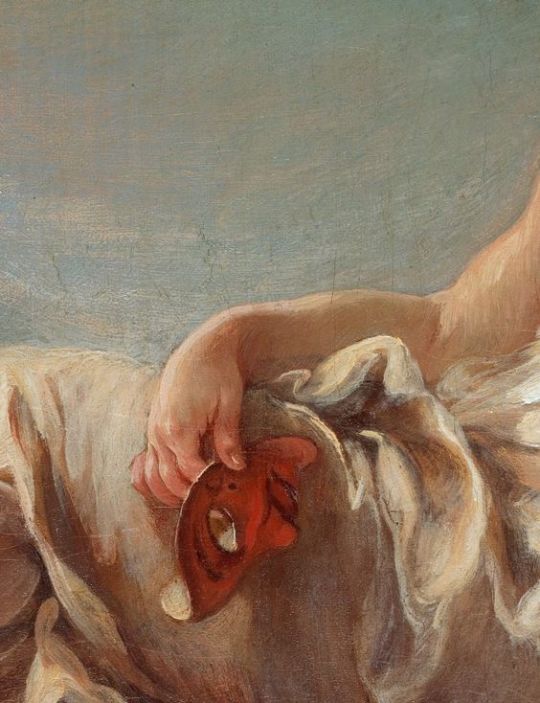

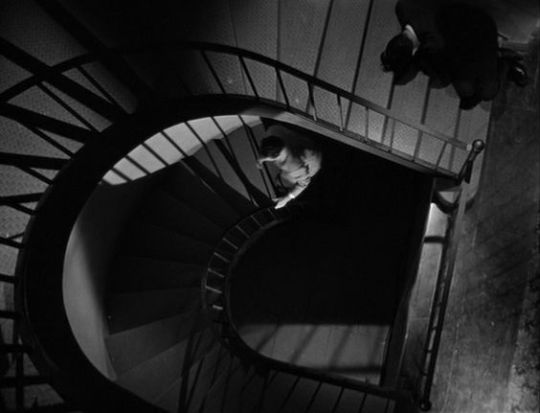



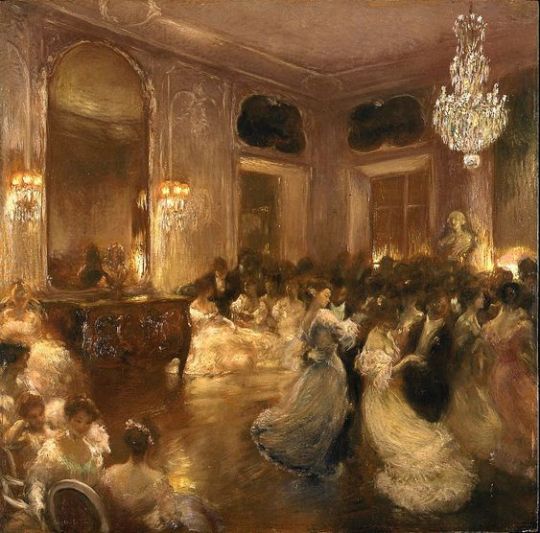
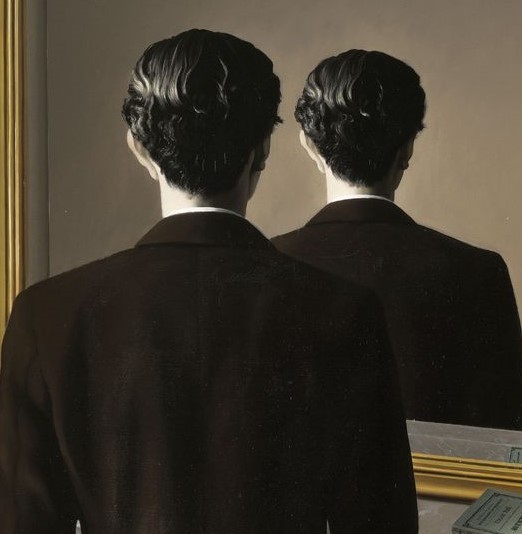


The Double. Fyodor Dostoyevsky.
Poor Mr. Golyadkin has a terrible couple of days; is overcharged for his pastries; gets his cheeks pinched and good tickling: all from a man who looks just like him.
#my man just wanted 1 fish pastry and got charged for 10#he is truly exhausted#and clearly insane#and such a little narc#he and his double are equally terrible in a somewhat loveable fashion#the cheek-pinching and the calling him 'sweetiepie' have me dying#these are children#dosto does humour and does it wellllll#i think the double is sorely underrated#golyadkin#ivan golyadkin#yakov petrovich golyadkin#The Double#fyodor dostoevsky#fyodor dostoyevsky#dostoevksy#russian literature#russian lit#classic lit#classic literature#books and literature#classic books#book aesthetic#moodboard#classic academia#classic art#dark academia
59 notes
·
View notes
Note
"But if he isn’t faking it then I am wracking my brains trying to figure out what a split or buried personality has to do with anything Dostoevsky… "
@ticklinglady : https://en.m.wikipedia.org/wiki/The_Double_(Dostoevsky_novel)
OH SHIT???
“The Double: A Petersburg Poem (Russian: Двойник. Петербургская поэма, romanized: Dvoynik. Peterburgskaya poema) is a novel written by Fyodor Dostoevsky.”
“In Saint Petersburg, Yakov Petrovich Golyadkin works as a titular councillor, a low-level bureaucrat struggling to succeed… On his way home through a snowstorm, he encounters a man who looks exactly like him, his double… At first, Golyadkin and his double are friends, but Golyadkin Jr. proceeds to attempt to take over Sr.'s life, and they become bitter enemies… At the story's conclusion, Golyadkin Sr. begins to see many replicas of himself, has a psychotic break, and is dragged off to an asylum by Doctor Rutenspitz.”
“The Double is the most Gogolesque of Dostoevsky's works; its subtitle "A Petersburg Poem" echoes that of Gogol's Dead Souls. Vladimir Nabokov called it a parody of "The Overcoat". Many others have emphasised the relationship between The Double and other of Gogol's Petersburg Tales. One contemporary critic, Konstantin Aksakov, remarked that "Dostoevsky alters and wholly repeats Gogol’s phrases." Most scholars, however, recognise The Double as Dostoevsky’s response to or innovation on Gogol’s work. For example, A.L. Bem called The Double "a unique literary rebuttal" to Gogol's story "The Nose".”
OH MY GOD THANK YOU. You are so awesome. This changes a lot.
#THIS IS WHY I PUT THIS POST UP#I was hoping someone knew something about this#bsd#bsd fyodor#thanks for the ask!#ahhhhhhh#storyrambles
171 notes
·
View notes
Text

Everyman (Justin Robinson)
"Ian Covey is a doppelganger. A mimic. A shapeshifter. He can replace anyone he wants by becoming a perfect copy; taking the victim’s face, his home, his family. His life. No longer a man, but a hungry void, Ian Covey is a monster. David Tirado is a massive, hideous colony organism, a gestalt entity. The sum of Covey’s discarded parts. A roiling, chaotic patchwork of vast and varied personalities, memories, and physical forms that used to be a man − many men − David Tirado is a monster. Sophie Tirado’s identity has been eroded by the tides of a long relationship, and now the man she gave herself up for has been stolen away and replaced by a mimic. Caught between the Doppelganger and the Gestalt Entity, she will try to save her husband, but there might be nothing left of him. Virtue has a veil, vice a mask, and evil a thousand faces."
The Double (Fyodor Dostoyevski)
"In Saint Petersburg, Yakov Petrovich Golyadkin works as a titular councillor (rank 9 in the Table of Ranks established by Peter the Great[3]), a low-level bureaucrat struggling to succeed.
Golyadkin has a formative discussion with his physician, Doctor Rutenspitz, who fears for his sanity and tells him that his behaviour is dangerously antisocial. He prescribes "cheerful company" as the remedy. Golyadkin resolves to try this, and leaves the office. He proceeds to a birthday party for Klara Olsufyevna, the daughter of his office manager. He was uninvited, and a series of faux pas lead to his expulsion from the party. On his way home through a snowstorm, he encounters a man who looks exactly like him, his double. The following two thirds of the novel then deals with their evolving relationship.
At first, Golyadkin and his double are friends, but Golyadkin Jr. proceeds to attempt to take over Sr.'s life, and they become bitter enemies. Because Golyadkin Jr. has all the charm, unctuousness and social skills that Golyadkin Sr. lacks, he is very well-liked among the office colleagues. At the story's conclusion, Golyadkin Sr. begins to see many replicas of himself, has a psychotic break, and is dragged off to an asylum by Doctor Rutenspitz."
#stranger poll#the stranger#poll#the magnus archives#leitner tournament#justin robinson#everyman#fyodor dostoevsky#the double
3 notes
·
View notes
Text
just finished dostoyevsky's the double!
First of all, great audiobook - after devouring as many as i did last year, i've started to really appreciate when an audiobook's narrator can properly tune in to the novel's tone and imbue their narration with just the right amount of emotion and exaggeration. the double's narrator did a fantastic job of making yakov petrovich sound pathetic and uncertain, and of conveying the other characters' confidence and contempt towards him.
what struck me most about the double is that i think i was able to put my finger on something i've felt about dostoyevsky's works before - the way he sort of... Goes There. he often chooses to portray sort of a worst case scenario for anxious, socially graceless, unconfident people. his characters inhabit a world that truly is out to get them, and are surrounded by characters who will misconstrue everything they say. if golyadkin thinks someone is scheming against him and acts accordingly, it will always turn out they were actually being completely honest, and will be confused and outraged at his insinuations. if he approaches someone with the assumption they are acting in good faith, they will always turn out to have indeed been scheming against him.
the double indulges in a very specific nightmare of someone who doesn't know what the rules of social conduct are. i myself have often felt this particular dread - that of going into an interaction convinced that confidence is everything, that if you just act like you know what you should be doing then everyone will believe you - and then getting the feeling that everyone around you knows you're bluffing, and finds you pitiful and embarrassing. golyadkin constantly tries to wink and nudge at his interlocutors, to imply something in the hopes they'll follow along. but they never do, and they don't even have the decency to pretend they understand his meaning in order not to embarrass themselves! no, instead they keep a straight face and ask golyadkin what it is, exactly, that he means? every character except our hero has the confidence and self-assuredness to call his bluff or demand explanation - but when things are being insinuated to golyadkin, he is the one feeling foolish and confused.
i was particularly struck by two exchanges - one between golatkin and his doctor early on in the novel, and another between goliatkin and petrushka, towards the end. in the first, golyadkin desperately tries to explain something, clear his name of some accusation, but is clearly unwilling to name the offense, and so resorts to vague allusions to certain persons and certain events. his doctor, annoyed and maybe confused with this style of speaking, refuses to try to understand who and what golyadkin might be referring to, and gently dismisses him. in the second exchange, petrushka is taking leave of golyadkin with no explanation or justification whatsoever, and golyadkin's shy questions are answered with vague insinuations - but whereas the doctor had enough self-assuredness to refuse to stoop down to the level of golyadkin's cowardly speech, golyadkin himself is the one trying to match petrushka's tone. petrushka also keeps peppering these "we all know"'s into his answers, which gives off an extremely patronising impression. this all paints golyadkin as not only a coward, but someone who so lacks confidence in his own understanding of social situations - confidence in his own perception of reality, even! - that he will bow down to whatever his interolcutor is saying, even if said person is someone inifnitely inferior to him in terms of social rank.
as a socially anxious and generally socially confused person, this image of the world - where everyone else seems to know what's going on, how to behave, where everyone seems to have the confidence to live their truth straighforwardly, but you are forever unsure and prone to embarrassing yourself due to not reading the room well enough - is so painfully familiar to me. i've said before that dostoyevsky is the most personal writer i've ever encountered, and from reading the double i certainly get the impression that he must have known some of the same anxieties i and many others experience decades after he lived. it makes for a really incredible reading experience.
i also wonder if it might be a reflection of the time and place dostoyevsky was writing in - i don't know about petersburg specifically, but 19th century russia must have been a confusing and difficult place to navigate when it came to social customs. i would imagine there was a lot of tension with the old aristocratic customs coexisting with new, industrial ways of organising society, with growing social unrest and discontent, with increasing influences from the west. there are mentions of changing times and new standards scattered throughout the book, so i imagine there is something to that. i would also imagine the kind of social anxieties i read into the book to be complicated even further by the rigid, multilayered rank system of 19th century russia, which sought to categorise social rank with an unprecedented amount of detail.
0 notes
Text
Golyadkin Sr.: We’ll fox ‘em, you and I!
Golyadkin Jr.:

#russian lit#literature#incorrect quotes#fyodor dostoevsky#the double#yakov golyadkin#yakov petrovich golyadkin
15 notes
·
View notes
Photo
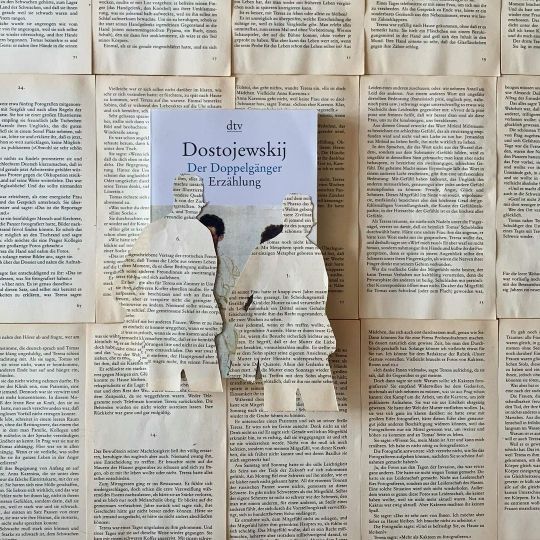
Can you imagine, you walk over a bridge in the night and suddenly a person appears that looks just like you. The other day, this person works with you, steals the fame for the efforts you made and makes you look like an unreliable liar. This is the sight of the main character in "The Double", the clever councillor Yakov Petrovich Golyadkin. Though the text itself forces you to think further. People might not be how they appear to Golyadkin, events might not have happened that way. That makes his story not a bit less important, it's a deep psychogram of a sick person. . I see a man that wants to break free, save his beloved from forced marriage and be healed from his groggy psyche, but actually everything falls into the crater, comparable to "The Idiot". People turn their back towards him. Instead of himself, his double gets what Golyadkin desires, he is like the personification of his wishes. That makes the doppelganger the enemy. In all the helplessness and impenetrability, this nerve-racking bureaucracy I saw many hints to the later arising works of Franz Kafka, it made me proud that the literary scientists see the same! . After all I read a brilliant journey between reality and hallucination, a psychological masterpiece, worthy of my other favorite writer! . #dostoyevsky #fyodordostoyevsky #thedouble #федормихайлович #федормихайловичдостоевский #достоевский #двойник #литература #санктпетербург #букстаграм #книги #literature #bookstagram #doppelganger #guyswhoread #gayswhoread #instagood #photooftheday #visualsoflife #dostojewskij #dostojewski #derdoppelgänger #leseempfehlung https://www.instagram.com/p/CRPNIszrNel/?utm_medium=tumblr
#dostoyevsky#fyodordostoyevsky#thedouble#федормихайлович#федормихайловичдостоевский#достоевский#двойник#литература#санктпетербург#букстаграм#книги#literature#bookstagram#doppelganger#guyswhoread#gayswhoread#instagood#photooftheday#visualsoflife#dostojewskij#dostojewski#derdoppelgänger#leseempfehlung
9 notes
·
View notes
Text
Yakov Petrovich Golyadkin trying to live a peaceful life as an introverted Russian government clerk
The universe:

23 notes
·
View notes
Text
the weakest part of the double (2013) is the fact that, in the original novella, the protagonist’s name was yakov petrovich golyadkin. and they changed it to james simon. the most bland ass english name i’ve ever heard. richard ayoade said fuck slavic rights.
#also in the og novella yakov's double is just called yakov jr. so that's something to unpack#smh smh smh smh smh smh smh smh smh#the double (2013)#my post#mY cOnTeNt#the double#fyodor dostoevsky#dostoevsky
19 notes
·
View notes
Photo

Narcissus the Killer? The myth of Narcissus is the story of I Me My Mine and NOT you becoming worse over time (Unedited version) clash of clans hack nowclash of clan hack clash of clan cheat hack The myth of Narcissus is one of the most known Greek Myths due to its uniqueness and moral tale; Narcissus was the son of River God Cephisus and nymph Lyriope. He was known for his beauty and he was loved by God Apollo due to his extraordinary physique. The myth of Narcissus comes in two different versions the Greek and the Greco-Roman version as both Conon the Greek and Ovid the Roman poet wrote the story of Narcissus enhancing it with different elements. Like to see more on Donald Trump Narcissism? Check in the alphabetical topic archive at the bottom of the page (it's the second giant list) for posts on: I Me MY Mine Greed Goals of the Psychopath Oligarch Oligarchy (Russian Greed) Theft Self focused and related "self" terms The Greek Version of the myth of Narcissus According to Conon Aminias a young man fell in love with Narcissus who had already spurned his male suitors. Aminias was also spurned by Narcissus who gave the unfortunate young man a sword. Aminias killed himself at Narcissus doorstep praying to the Gods to give Narcissus a lesson for all the pain he had provoked. Narcissus was once walking by a lake or river and decided to drink some water; he saw his reflection in the water and was surprised by the beauty he saw; he became entranced by the reflection of himself. He could not obtain the object of his desire though and he died at the banks of the river or lake from his sorrow. According to the myth Narcissus is still admiring himself in the Underworld looking at the waters of the Styx. The Roman Version of the Myth Ovid Mirror Mirror On The Wall Posts 3 of them you can page forward through them The myth presented by Ovid the poet is slightly altered. According to this myth Narcissus parents were worried because of the extraordinary beauty of the child and asked prophet Teiresias what to do regarding their sons future. Teiresias told them that the boy would grow old only if he didnt get to know himself. When Narcissus was sixteen he was walking in the woods and Nymph Echo saw him and felt madly in love with him. She started following him and Narcissus asked whos there feeling someone after him. Narcissus and Echo Echo responded whos there and that went on for some time until Echo decided to show herself. She tried to embrace the boy who stepped away from Echo telling her to leave him alone. Echo was left heartbroken and spent the rest of her life in glens; until nothing but an echo sound remained of her. Nemesis though the Goddess of Revenge heard the story and decided to punish Narcissus. From this point the stories are similar; Narcissus sees himself in the pond and he is amazed by the beauty of the reflection. Once he figured out that his love could not be addressed he killed himself. The myth of Narcissus in modern life and Art The myth of Narcissus is known also for one additional reason; the flower Narcissus that is found usually at the banks of rivers and lakes took its name after the mythical hero. It is a graceful flower featuring 40 different species mostly grown in Europe. It blooms in early spring and is considered fragile and very beautiful with white yellow and pink blossoms. The Myth of Narcissus has inspired several artists as well; the most known is Caravaggio who painted a young man admiring his reflection in the water. The painters Turner and Dali were also inspired by the myth while poets such as Keats and Housman used his example in many of their works. The Russian writer Fyodor Dostoevsky created several characters with the mentality and loneliness of Narcissus such as Yakov Petrovich Golyadkin. nice article thanks to and check out their other mythos:http://bit.ly/2ixNcUF In the Myths Narcissus didn't kill directly. He died before his Narcissism developed into a languid self-love that evolved from narcissism to psychopathy. In psychopathy the self love must scheme to get more and more of the self love and to strategize to get it dedicate one's life to get it and to use others to get it. If Narcissus had not died he would have become: a psychopath a taker thief a vampire a criminal a glib Machiavellian a gangster a drug lord an entitled mobster mafia There is an odd and indescribable hunger of the the pathological narcissist and dangerous psychopath the Dark Disorder. They are on a hunt at all times for their "food of self love": Dorian Grey seeks the eternal youth of his beautiful self while others are ignored. In some retellings he's likened to a vampire The movies Hannibal portrays a serial killer who is lost in the admiration of himself and his gory deeds with the image in the mirror loved being one of control cunning hunter and shock-doctor. Add to this any current world dictator serial killer psychopath the Las Vegas shooter that wanted to know there were security cameras filming his awful massacre and vampire movie (including the comedy ones) and any Marvel Movie where there is a megalomania killer or alien invasion! Hey it seems like Narcissus isn't really much danger to others so why even bring it up? The danger lies in what develops in the brain mind and personality over time. What is the danger in these stories both mythology and Grimm's fairy tales (Mirror Mirror on the Wall)? Is the warning just to Narcissus? No there is a full collapse of the kingdom: Donald Trump lives for attention and admiration and real governance is given only his spare time and the country suffers: Kim Jon-Un is on the camera blasting off another missile or presiding over a lavish show banquet or military parade. And for each bomb military parade costume or Kim's silk Mao suits paid for people go hungry.....they same is true for all other world dictators or drug lord In Russia where are the cameras always focused: on the cute face of Putin or a photo shoot of him trout fishing in the mountains with and without shirt on with and without horse mount. Some seem so innocent and innocuous but what is the danger of a Russian Oligarch stealing peoples incomes and allowing puppets to kill groups while the masses are marginalized and denied help and services? (see the tab above: Death and Genocide by Marginalization) I ME MY MINE and not you and btw: your money eventually will be my gold stores Psychopathic Leaders: 1. If a psychopath is looking in the mirror they're paying attention to the "object of their affection" themselves. They are not looking at other matters and details of life whether family or obligations. Consider the mirror as any of these persons truly looking in the mirror at themselves but also in the mirror or lens of admiration and notice by others: 2. If a psychopath then is looking at their object of their affection they build up in their mind that inflated value of themselves and the deflated value of otters. In that way others become servants to be used of lesser value getting the lot in life they deserve needing punished and in other cultures: deserving rape / torture or slavery. This is one of the reasons that over time psychopaths become worse and not nicer. Both the brain neural pathways and the mind/personality allow this self-infatuation and devaluation of others. Literally over time more of the brain's mental capacity and more of the personality is dedicated to self love conning deception and gack: More of the brain and mind / personality become dedicated to the devaluing of others! They can't be reasoned with helped to understand have a change of heart or "grow up". They instead become more narcissistic and debasing of others. They are more and more dangerous over time more criminal and more conning. Now if they appear nicer over time.....that comes from some skill in the art of the con and deception of others. In mythology and cinema young vampires are brash and inexperienced hunters of human souls and blood while older grey streak hair vampires of hundred of years know just how to appear to con. They are skilled and in movies which are a reflection of our human stories the skilled vampire is able to con village leaders and youthful beauties to their bloodbath via a refined red wine dinner in the dank vampire's castle. The stories tell remind us: Takers Take Vampires hunt and drain leaving empty husk humans behind and psychopaths do not change but become worse over time: Skilled and better at the con but now amazing more $$$$ The Brain dedicates more memory space problem solving and thought time as well as those connecting "neural pathways" becoming supercharged in narcissism. If there was any danger from a vampire a cruel dictator or a psychopath or 60% of persons in prison which is the amount of those there that are psychopathic I like to follow this rule which came about just through observation in 35 years of clinical work with this type: 1. The become 5% worse at who they are and what they do each year. 2. this is occurring in their brain neural pathways and mind / personality What are the exceptions to this??? There are some but really it's a matter of diagnosis errors. A. each psychopath has childhood traits that are clues to the danger. As children they might or might not be dangerous to others and animals yet. But they may torture animals be a bully at age 5 do cruel things to siblings or parents. As a clinician I've always been aware and found the childhood traits because I knew what to look for. Most other times especially in psychiatry no time is given to a full childhood psychological investigation or the gathering of reports from not just parents (who may give a false and glowing good report of "Billy") but siblings and of early grade school records and reports. For more on this see the Books Evil Clowns and Las Vegas / Sandy Hook Shooters by Dr. Bunch. I've had many experiences in the clinical office and in personal life with children acting on their psychopathy or having the clues they'll become psychopaths: A few years ago a distant relative had a Holiday dinner I attended. Their 6 year old came up to me and with a smile cunningly said "If you look at my mother I'll kill you". Througout the event glares and reminders were sent as if from Hannibal Lecter or Chucky (both movie psychopathic killers). I tried to see if the child was playing was told to say so by siblings or mimicking some character. My feelings though told the truth: I'm a person who walks without fear in danger zones in Mexico City and Rio de Janeiro but this was one of the few times I could recall being drawn into a terrifying scenario. And the event wasn't something I'd projected onto little Hannibal because I've only recent years studied child psychopathy and some related horror films. But it did bring up feelings I found in the docudrama true movie of Donald Trump's mentor: Roy Cohn. The movie and many posts are on the site archive under Cohn Roy Cohn and movies. I determined that this kid was the smart type that could put some poison in your soup like Chucky movies. How do they gain this particular knowledge? We're all drawn to our own brilliances and interests. Some kids are drawn to their love of sciences dolls toys guns anime cartoons heroes sports relaxation reading or imagination. Psychopaths are drawn to the brilliance of their Vampire Taking and other areas of their lives suffer because of it which also happens to all of us: Susie spends time imagining stories and ignores her father and mother that could model some living skills. She might be taken advantage of by others later in life without those skills. Little Lecters spend time developing bully skills developing theft strategies developing con and coverup methods while other parts of their life may be neglected. For many like Roy Cohn psychopath they are socially skilled and street wise but he in his law or government roles was very shallow. He had little knowledge or need for history which would have changed his cruel government actions he took with McCarthy against gays actors and blacks all groups as "Commies". Little Lectors have no or limited knowledge of the greater world languages cultures peoples nature or hobbies. Their mind is FOCUSED on the psychopathy matters while these fall to the wayside: They're not likely to be involved seriously in: Scouting ongoing community service palling around with a younger sibling developing hobbies: Legos or rocks having "humble jobs" as a youth such as delivering door flyers (in my time it was delivering newspapers) being a school peer counselor being in a spelling bee or science competition having a disabled friend having multi racial friends (a white boy hangs out only with other white boys a Hispanic boy only hangs out with other Hispanic boys) low interest in reading books not in the public library and so on. So back to the exceptions: 2. PTSD: returning war veterans go on a rampage shooting kill girlfriends or become repeat felony criminals in other ways. Is this an exception. Do psychopathic killings occur when the person is not a psychopath? Does the disorder just kick in when a veteran with PTSD returns and kills 5 persons in a bar at age 28 or 20 years later at age 48? These events are related to persons wth PTSD but the underlying cause is missed: 40% of War Veterans have PTSD Possibly 20% of Americans have PTSD from assault trauma childhood bullying War Veteran witness trauma medical crisis trauma etc. at least 95% of all those with PTSD of all types are not psychopaths and do not commit mass shootings murders or felony crimes Those shooters then have psychopathy and PTSD both. But the cause of the shootings is associated with the rage superiority and must punish issues of the psychopathy (see more in the book Las Vegas / Sandy Hook) This is the case where we're saying the person was fully "typical" and not a narcissist or psychopath as a child or teenager. Now when does a psychopathic pattern not equal psychopathy? There are rare if actually not any cases. Earlier from about year 2000 to 2010 returning war veterans that were involved with single or mass shootings were finally recognized as having gone off the deep end the war trauma being the major trigger. At that time they were given the benefit of having a diagnosis of PTSD. Now we know that 40% of all war veterans whether they saw combat or not have PTSD Post Trauma Stress Disorder. This is a disorder seen both in brain scans and in one's psychology. Later investigations after 2010 have revealed though that those who's childhood history could be investigated showed: bullying of siblings parents school mates teachers not following rules rage torture of animals including dismembering birds destruction of childhood and teen minor or major crimes a pattern of childhood psychopathy: oppositional defiant disorder self interest lack of sympathy and bias: there are those that are lesser and deserve punished bullied money taken away from at school made fun of called sissy's cut with knives or other minor or major torture grandiosity grandiose plans Bill was a 12 year old patient who took my waiting room wall clock that was broken down. With a knife which was not to have on him he set about disassembling the clock. His mother said he does that where he does think he can fix things and is "very mechanically inclined" as he says but everything ends up in a pile of metal cogs and broken parts. He was grandiose in what he thought he could do but not one step of the repair was undertaken. It didn't matter that he had a giant inventory of disassembled items because he never considered it a failure moving on quickly to another subject. Some psychopaths like Donald Trump Duterte of the Phillipines and El-Esis of Egypt have this inkling: they are good at unraveling and disassembling things but not at putting things together combining them or synthesizing new ideas. In fact Donald Trump's campaign promise was to unravel so many aspects of wieldy government which he had set about doing the first 9 months of office. But now he's unravelled the rope so much it can't be rewound. It seems many psychopathic leaders hope to get other experts on their staff to to the rebuilding of something "new" or just put it back together again. Putin seems mentally organized enough to get those persons to do his work. But Donald Trump Roy Cohn and Duterte are too mentally disorganized to accomplish this and that is their Waterloo. Trump is distracted throughout the day with an Attention Deficit Disorder from the matters of State to: TweetStorms Tweet Baiting vulnerable people Political Conflict with colleagues Promoting Properties and golfing Competing with Putin and other Dictators: my gold is more than yours Being seen and admiring Planning pre-emptive and counter attacks (today Donald Trump said after Senator Bob Corker announced Trump is only divisive for our country: "Bob Corker is the most divisive person..... ......And now I'm rebuilding this Country So Well". (see what this method of attack lie is in the book Skyscrapers of Lies and Deceit) See articles in the Topic Cloud Archive: Unravel Disassemble Decompile Psychopaths Pirates Vampires and more: Run flee tell others! 300 topics on this listed below in the Cloud Archive: Click Here: Catalog of 100 Books Kindle Hypnosis Binaural Subliminal CDs death by marginalization mirror mirror on the wall narcissus self focus trump self absorbed #trumpbully #stopbully #trumpmentalhealth http://bit.ly/2rZ1vSp
Narcissus the Killer
0 notes
Text
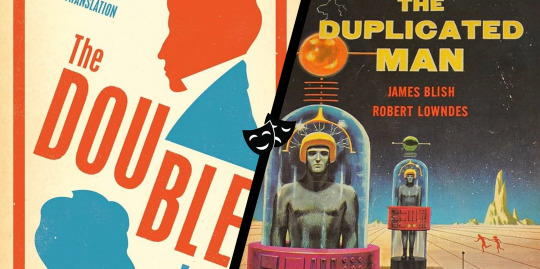
The Double (Fyodor Dostoyevski)
"In Saint Petersburg, Yakov Petrovich Golyadkin works as a titular councillor (rank 9 in the Table of Ranks established by Peter the Great[3]), a low-level bureaucrat struggling to succeed.
Golyadkin has a formative discussion with his physician, Doctor Rutenspitz, who fears for his sanity and tells him that his behaviour is dangerously antisocial. He prescribes "cheerful company" as the remedy. Golyadkin resolves to try this, and leaves the office. He proceeds to a birthday party for Klara Olsufyevna, the daughter of his office manager. He was uninvited, and a series of faux pas lead to his expulsion from the party. On his way home through a snowstorm, he encounters a man who looks exactly like him, his double. The following two thirds of the novel then deals with their evolving relationship.
At first, Golyadkin and his double are friends, but Golyadkin Jr. proceeds to attempt to take over Sr.'s life, and they become bitter enemies. Because Golyadkin Jr. has all the charm, unctuousness and social skills that Golyadkin Sr. lacks, he is very well-liked among the office colleagues. At the story's conclusion, Golyadkin Sr. begins to see many replicas of himself, has a psychotic break, and is dragged off to an asylum by Doctor Rutenspitz."
The Duplicated Man (James Blish and Robert Lowndes)
"The central premise of this novel concerns a cloning device that requires six different people, one for each duplicate to be created, to be hooked into the machine. Turns out while the memories are copied the personalities and appearances are affected by the subjective views of the various individuals. E.g., one copy is actually a bit shorter and more cowardly than the original because that's how its creator perceived the original while another due to her hero worship was a physically and mentally perfected version of the original."
#stranger poll#the stranger#poll#the magnus archives#leitner tournament#fyodor dostoevsky#the double#james blish#robert lowndes#the duplicated man
2 notes
·
View notes
Text

The Duplicate (William Sleator)
"When David finds a mysterious machine that can copy living things, he thinks his problems are over. Now he can be in two places at once: at his grandmother's and out on a date. While the other David is in school, the real one can spend the day at the beach. The possibilities are endless. And they turn terrifying. David's duplicate has a mind, ideas, and desires of his own--and one of them is to see the real David dead."
The Double (Fyodor Dostoyevski)
"In Saint Petersburg, Yakov Petrovich Golyadkin works as a titular councillor (rank 9 in the Table of Ranks established by Peter the Great[3]), a low-level bureaucrat struggling to succeed.
Golyadkin has a formative discussion with his physician, Doctor Rutenspitz, who fears for his sanity and tells him that his behaviour is dangerously antisocial. He prescribes "cheerful company" as the remedy. Golyadkin resolves to try this, and leaves the office. He proceeds to a birthday party for Klara Olsufyevna, the daughter of his office manager. He was uninvited, and a series of faux pas lead to his expulsion from the party. On his way home through a snowstorm, he encounters a man who looks exactly like him, his double. The following two thirds of the novel then deals with their evolving relationship.
At first, Golyadkin and his double are friends, but Golyadkin Jr. proceeds to attempt to take over Sr.'s life, and they become bitter enemies. Because Golyadkin Jr. has all the charm, unctuousness and social skills that Golyadkin Sr. lacks, he is very well-liked among the office colleagues. At the story's conclusion, Golyadkin Sr. begins to see many replicas of himself, has a psychotic break, and is dragged off to an asylum by Doctor Rutenspitz."
#stranger poll#the stranger#poll#the magnus archives#leitner tournament#william sleator#the duplicate#fyodor dostoevsky#the double
5 notes
·
View notes